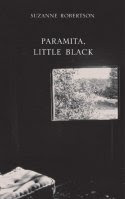New Selected Poems: 1984-2004 by Carol Ann Duffy is a compilation of the best of her poetry of twenty years of published works,
Standing Female Nude (1985) to
Feminine Gospels (2002). I had fallen in love with Duffy's poetry after being introduced to her by a friend living in the UK where she is quite popular, who lent me another selected works of hers,
Love Poems. In Canada the only collection I was able to locate was
Standing Female Nude, so I decided to purchase
New Selected Poems online to get a taste of the rest of her writing.
Like most selected works, the collection appears in chronological order so the first poems I read were ones excerpted from
Standing Female Nude (1985). Rereading them I shared the same feelings I had initially, that although some showed potential and a couple lines were lovely, they definitely didn't have the spark I had expected from Duffy's writing. To be honest, if I was unaware of how incredible her later writing was I am uncertain that I would have continued reading the collection, which I suppose is the unfortunate result of starting from the beginning when it comes to a person's writing as many poets improve over time. The biggest disappointment was that most of the poems I had loved when I read
Standing Female Nude are not included in
New Selected Poems, and many of the ones I had particularly not enjoyed or understood such as "Comprehensive" and "$", were. Overall, it provided a good introduction to Duffy to allow the reader to see how her work has evolved even if it's not a portion of the collection I will be flipping back to regularly.
Next up was
Selling Manhattan (1987), which from the poems selected shows a definite improvement over
Standing Female Nude. Many of the poems in this collection deals with different sorts of love from love for a place ("Homesick") to love for a person that is far away ("Telephoning Home"), and a few are quite powerful. "Warming Her Pearls" about a servant in love with their master was one that particularly stuck with me, as did "Foreign" which discusses what it is like to be in a new country where "You think/ in a language of your own and talk in theirs." However there were still quite a few poems which seemed to not quite fulfill their potential, often suffering from the same abruptness that appears in the previous collection. These include "Money Talks" and "The Brink of Shrieks".
Selling Manhattan begins to show what Duffy is capable of, even if she hasn't quite reached it yet.
The Other Country (1990), includes several poems on the theme of childhood which were my favourite. In "Originally", Duffy writes that "All childhood is an emigration." as we grow and change into a new person until we hardly remember what things used to be like. "In Mrs Tilscher's Class" captures the enthralling and anxious nature of childhood, ending with the lines "You ran through the gates, impatient to be grown, / as the sky split open into a thunderstorm." Unfortunately, outside of these childhood poems I was less impressed by the rest of the poems, many of which like "Weasel Words" felt almost nonsensical at times. "Making Money" and "Pere Lachaise" both reverted to the list-like abruptness I didn't enjoy in
Standing Female Nude, and in general the collection seemed like more a step backwards than forward from
Selling Manhattan.
In
Mean Time (1993) Duffy begins to develop some of her signature careful and beautiful language. There were still poems I didn't quite grasp or appreciate, ones such as "The Captain of the 1964
Top of Form Team" and "Fraud" which just didn't find have any form of emotional connection, but they finally became outnumbered by ones I enjoyed. "Moments of Grace" reminded me exactly of what I love about Duffy, her vivid metaphor in ordinary moments, followed by "Valentine" where she writes:
"Not a red rose or a satin heart.
I give you an onion.
It is a moon wrapped in brown paper.
It promise light
like the careful undressing of love."
It is with simple stanzas like this, not bulky lists, that the emotional power of her words truly shines and in
Mean Time she seems to finally discover this. Even in "Adultery" Duffy makes the abruptness work as she shows the steps of an affair, saying "You're a bastard. / Do it do it do it." It is clear from this selection that although Duffy may still have some growing pains she has begun to crystallize her style and form.
Following
Mean Time there is a selection of
Other Poems which do not belong to a collection but are collected in
New Selected Poems. I didn't find any of these poems incredibly amazing but I suppose they were an interesting addition to the collection especially if this is the first time they have been published together. Quite a few of them were a bit odd, for example "To Boil Bacon" which is exactly what it sounds like. Several poems revert back to the list-format I don't enjoy, including "Kipling" for a description of the many items a man is selling without much emotional impact even when I realized that the reason he is selling everything is a lost bet and "Named For" which describes all the reasons for a person's many names. Overall, these poems seemed pretty ordinary and I am unsure when they were written but it felt like many of them must have been older.
Next was
The World's Wife (1999), a themed collection which retells various famous stories but from the female perspective. Some of the poems reminded me slightly of the collection
Transformations by Anne Sexton which retells fairytales, just as Duffy does in "Little Red-Cap" in which the Little Red Riding Hood takes an axe to the wolf, finding the "virgin white of my grandmother's bones" inside. In "Mrs Midas", Midas' wife deals with her husband's transformation, and how he had no thought for her when he gave up their ability to touch each other and "
from Mrs Tiresias" tells what it was like when her husband came home a woman. Other poems like "Mrs Darwin" and "Mrs Faust" are more clever than poetic but they all show the important role of the woman in a story which is usually told from the man's perspective. The poems in
The World's Wife tells old stories in a new way, but what makes them most unique is the beautiful language that Duffy uses to do it.
The final collection included is
Feminine Gospels (2002) which is all about the woman. These aren't the wives of men like they are in the previous collection, but independent and interesting all in their own right. Some of the poems such as "The Map-Woman", "Beautiful" and "The Diet" contain the same whimsy present in
The World's Wife as Duffy tells an actual story through them. These poems focus on specific women- one who is thin, one who is beautiful, one who is tall- and what happens to them.
I found the poems about these archetypes insightful and well written. They are followed by
The Laughter of Stafford Girls' High makes up over a third of the selection and is by far the longest poem in the entire book. The problem with it was that I didn't really consider it a poem, it becomes so much like a narrative that it feels more like a story in verse than a poem. It was enjoyable and entertaining to read, but I don't really feel like that makes it a good poem.
New Selected Poems was an uneven collection for me, with my favourite selection being from
The World's Wife although there were quite a few other gems throughout. The collection shows Duffy's growth as a writer, and I am definitely interested in picking up
Rapture her most recent collection which centres around love and which I have a feeling will be even more to my liking as Duffy seems to be at her best when she is writing passionately. Overall,
New Selected Poems provides a good overview of Carol Ann Duffy's writing but it also let me know that when it comes to further purchases I will definitely sticking to her later collections.
Release Date: October 15th, 2004
Pages: 253
Source: Personal Copy
Buy the Book

























